Hardliner Regime Insider Calls For Execution Of VPN Retailers
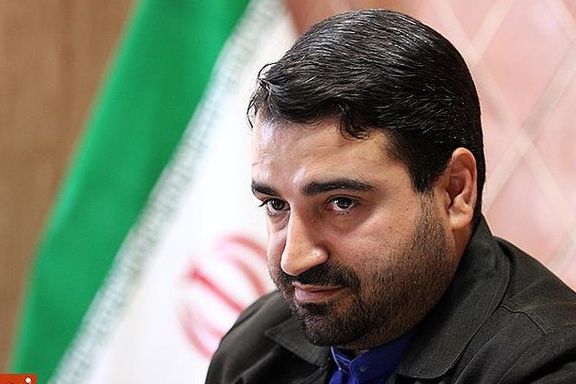
A hardliner supporter of the Iranian regime says those who sell VPNs (virtual private networks) so that others “can watch porn” should be executed for “corruption of the earth.”

A hardliner supporter of the Iranian regime says those who sell VPNs (virtual private networks) so that others “can watch porn” should be executed for “corruption of the earth.”
Ruhollah Momen-Nasab said in an interview with Ensaf News that if some of those who sell VPNs were hanged, “the others would learn a lesson.”
The government has been severely restricting Internet access in general and access to popular social media platforms, such as Instagram, that play a key role in e-commerce.
The authoritarian regime has been restricting access to many websites for more than two decades, with more restrictions put in place since last year. It is extremely nervous that people use the Internet and social media to share news and images about protests that swept the country since September.
In February, 18 members of an ad hoc parliamentary committee said they had ratified the outlines of a bill to officially restrict internet and social media access.
Earlier, Momen-Nasab, who is a parliamentary special advisor on the so-called 'Legislation to Protect Cyberspace Users' and former commander of the cyber army revealed how Tehran has been using twitter for propaganda.
“We created new accounts on Twitter, using the persona of other Twitter influencers who were mainly counter-revolutionary activists. Ours just differed in a single character and was quite similar to the real one. We used the same picture and the same name, but everything was fake. Once created, we started our activities,” Momen Nasab told the state TV last year.
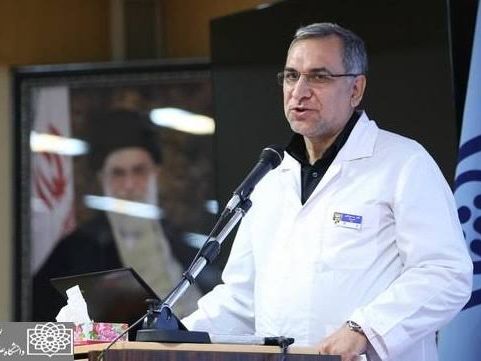
Iran’s health minister says violation of hijab regulations is considered a crime at hospitals and if they do not abide by hijab regulations, they will not receive approval to operate.
Bahram Einollahi said in an interview with Fars News Agency on Tuesday that public hospitals have been required to comply with the hijab law and provide services to women by female staff.
“Women's ultrasound should be performed by women, and in some cases that we do not have enough radiologists, we ask female general practitioners and gynecologists to be given short-term training,” underlined the minister.
His comments are made in a situation that the recent protest movement in Iran was triggered by the death of Mahsa Amini, a 22-year-old woman, when she was arrested by the ‘morality police’ for ‘improper hijab.’
During the nationwide protests, many women removed the mandatory hijab and set their headscarves on fire in the streets as a sign of protest.
Western governments, including the United Kingdom, the United States, and Canada, added the hijab law enforcement unit to their list of sanctioned entities.
A lawmaker said in December that the regime is making some changes about hijab rules. He added “it is possible that women who do not observe hijab would be informed via SMS, asking them to respect the law. After notifying them, we enter the warning stage... and last, the bank account of the person who unveiled may be blocked."
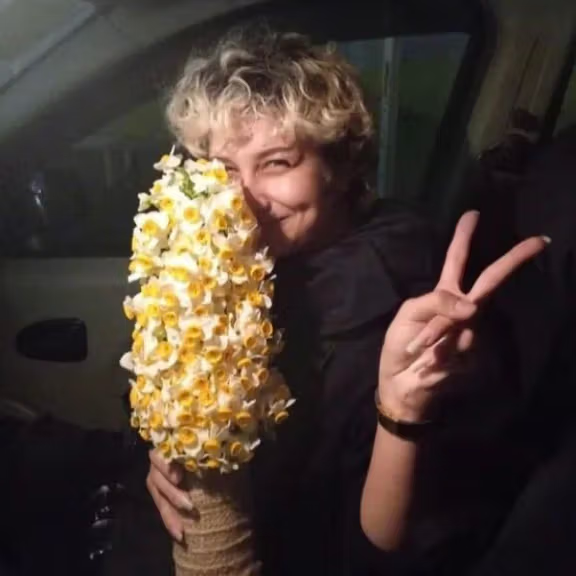
The father of Armita Abbasi, a 20-year-old protester who was arrested during Iran's nationwide protests, says his daughter has been released.
Hamid Abbasi wrote on his Instagram Tuesday that "We experienced a very difficult time, but now I am extremely happy."
He did not explain more about the release of her daughter but wishing for the release of other detainees of the protests, he wrote "Hope we won’t have political prisoners anymore."
A week ago, Armita Abbasi's lawyer, Shahla Orouji, said she had been accused of "propaganda against the establishment", and "holding a gathering with the intention of acting against national security".
Orouji stated that although her client's two-month detention term has been served, "the [officials] resist her release on bail".
Armita Abbasi, 21, was arrested in late September during the protests following the death of Mahsa Amini in hijab police custody. According to leaked reports, she was gang-raped many times after being arrested, for which she was taken to hospital. Security forces quickly kidnapped her from the hospital and took her back to prison.
Her family, who were somehow informed she had been taken to hospital went to the hospital in Karaj, but the agents took her out before they arrived.
Alborz province judiciary said on November 8 that "the news published about rape of Armita Abbasi is baseless and not true."
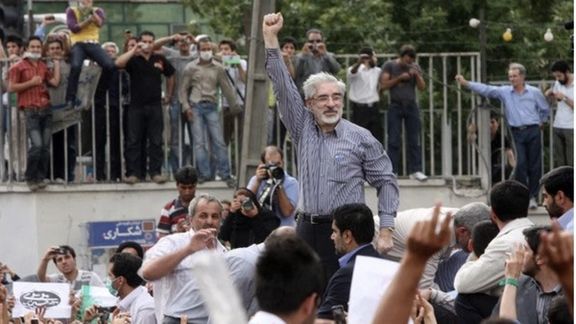
The 2009 Green Movement leader Mir-Hossein Mousavi’s rejection of the reform option in the Islamic Republic has been met with admiration and antipathy alike.
In a rather short statement entitled “To Save Iran” Saturday, Mousavi who has been under house arrest along with his wife Zahra Rahnavard since 2011 underlined his recognition of the ‘Woman, Life, Freedom’ movement and called for a fair and free referendum to decide whether the present constitution should be amended or completely replaced.
He also called for elections to appoint a constitutional assembly to decide the future form of government as well as a further vote to decide whether the new constitution is acceptable to the people or not.
Such a referendum would very likely put an end to Velayat-e Faghih (rule of the Islamic jurist) which gives a cleric such as Ali Khamenei extraordinary powers including the power to overrule all elected bodies and officials and hence, people’s choice.
This comes in contrast to his position in 2009 when in a highly disputed election result he was denied the presidency running against the incumber Mahmoud Ahmadinejad. At that time although millions of people poured into the streets to support him, he refrained from seriously challenging the regime and its leader Ali Khamenei.
Mousavi admitted that he did not know who should decide to hold a referendum, since the current rulers would not, but called for cooperation among all political forces and figures who believe in preserving the country’s territorial integrity and non-violence to clarify these points.
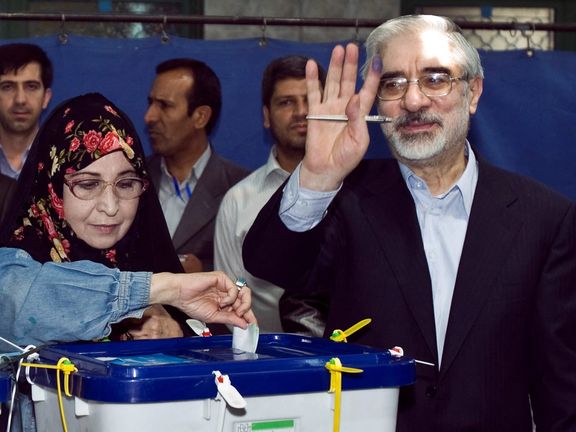
“There were two types of reformists in Iran. Some neither desired nor thought it possible to overthrow the misery [caused by the clerical rule] and sought a share of power. A minority including Mir-Hossein Mousavi believed that the misery of the clerical rule was reformable and could evolve into democracy. Mir-Hossein Mousavi’s courageous new statement showed that he has given up the dream of reform,” US-based academic Abbas Milani tweeted.
Some reformists, including seven prominent political prisoners and over a dozen figures of the ‘religious intellectual movement’, and its mentor Abdolkarim Soroush, have welcomed his proposal, others have strongly rejected it.
Speaking to Iran International, Soroush said Mousavi’s supporters and opponent agree that he “bears a weight” that cannot be ignored.
The political prisoners who have supported Mousavi’s new move have said that they will do their best to advance his proposal to bring a “peaceful and non-violent transition to a completely democratic and developed Iranian structure."
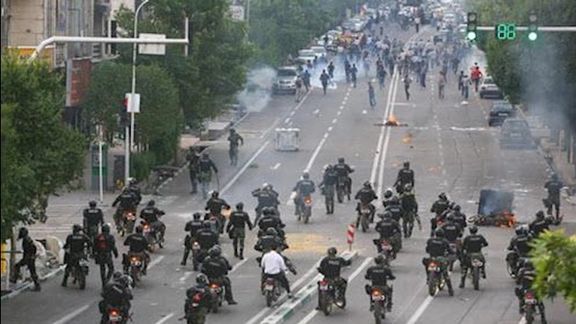
Many of Mousavi’s opponents say as a former prime minister (1981-1989) he is responsible for much of the regime’s wrongdoings and atrocities including mass execution of thousands of political prisoners in 1988 and the Cultural Revolution to expurgate universities from Marxists and militant political groups such as the Mujahedeen-e Khalq Organization.
Arguing that Mousavi has never denounced the Islamic Republic’s founder, Ruhollah Khomeini and his ideology, and still admires him and his “golden era”, pro-monarchy journalist and activist Morteza Esmailpour said in a tweet that Mousavi himself should be put on trial because “the regime was always criminal”.
The prison executions were carried out based on a fatwa by Iran's then-supreme leader, Ruhollah Khomeini, against the MEK which carried out a wave of bombings in Iran and struck an alliance with Saddam Hussein during the 1980-88 war. “Showing mercy to those who take up arms against the Islamic government is being naïve,” Khomeini said in his fatwa.
In June 2010 Mousavi claimed, in a meeting with a group of journalists and political activists, that not only he, but also other top officials -- including the president, chief justice and the speaker as well as Khomeini’s designated successor Hossein-Ali Montazeri – were unaware of what was happening in prisons and blamed the prison purge on others including a former warden of the infamous Evin Prison Assadollah Lajevardi.
He also admitted that many of the prisoners who were executed had not committed any crimes or if they had, they were already serving their sentences. “We even knew some of them, from before the revolution and after that… They were poets, they were writers … They had not taken up arms,” he said.
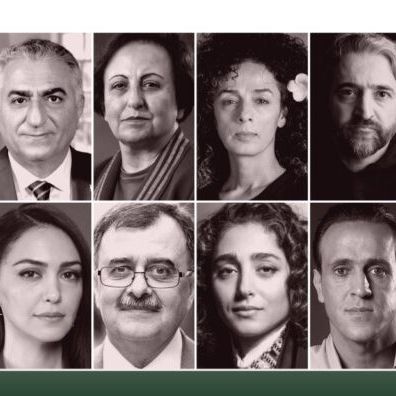
Eight key Iranian diaspora opposition figures will hold a meeting with the media at Georgetown University Friday titled: The Future of Iran’s Democracy Movement.
Since the start of popular antigovernment protests in Iran last September the issue of forming an opposition leadership council has been a hot topic of discussion among Iranians. This is the first time key figures outside the country join together in one venue to express their views.
Exiled Prince Reza Pahlavi, Nobel laureate Shirin Ebadi and Canada-based Dr. Hamed Esmaeilion, President of the Association of Families of Flight PS 752 downed by Iran’s Revolutionary Guard in 2020, as well as US-based author, journalist and women’s rights activist Masih Alinejad, actresses and activists Nazanin Boniadi and Golshifteh Farahani, former captain of Iran’s national soccer team Ali Karimi and Secretary General of Komala Iranian Kurdish party Abdullah Mohtadi are four women and four men of the group.
The February 10 event at Georgetown’s Institute for Women, Peace and Security (GIWPS) will be moderated by Karim Sajjadpour, Senior Fellow at the Carnegie Endowment and adjunct professor at Georgetown University.
“For the first time since the uprisings began, eight of the Iranian democracy movement’s prominent diaspora leaders will share the stage to talk about the continued viability of the movement, their common vision for Iran’s future, and how democratic change in Iran can change the world,” an announcement by GIWPS said.
The event can become a turning point in shaping a united leadership abroad to represent the democracy movement in Iran, where activists have no chance of publicly defending it. Thousands of protesters are still in prison and dozens face the death sentence.
The event coincides with the 44th anniversary of the establishment of the Islamic Republic, which this year is marked amid political uncertainty as many people in Iran support or sympathize with the protest movement and are caught in perhaps the most difficult economic crisis since the 1979 revolution.
The clerical-military regime finds itself in international isolation, facing multiple domestic crises and beginning to show signs of strain.
Last week, Mir-Hossein Mousavi, the leader of the 2009 Green Movement who has been under house arrest since 2011, issued a strong statement calling for a referendum to decide the future form a democratic Iran. Mousavi who was a top leader of reformists in Iran said that there is no hope the ruling regime can be reformed.
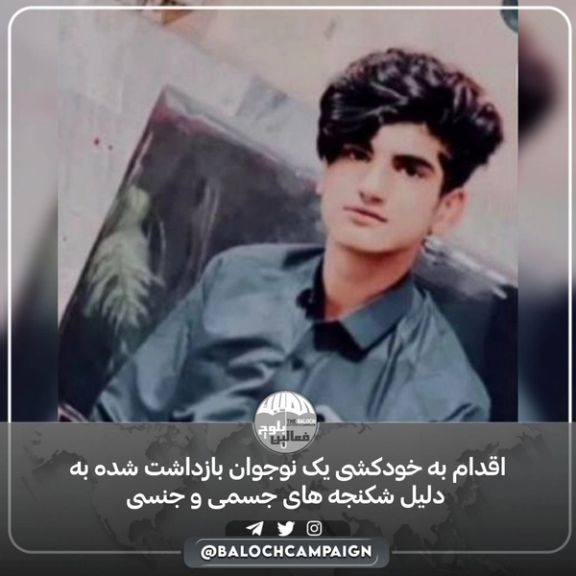
Baluch Activists Campaign say a teenager arrested during protests has attempted suicide in Zahedan prison, southeast of Iran, due to severe physical, sexual and mental torture.
According to the human rights organization, the teenager was arrested by the Revolutionary Gaurd intelligence in Zahedan on January 3, but he tried to take his own life after being severely tortured.
The 16-year-old has been identified as Benyamin Kouhkan, a citizen of Zahedan, the provincial capital of the largely Sistan-Baluchestan province largely populated by Sunnis of Baluch ethnicity.
There have been numerous reports of torture and rape of detained protesters in the past five months. Many have been forced make confessions admitting to crimes they never committed.
An informed source told the Baluch Activist Campaign that Benyamin informed his mother in a phone call that he had been subjected to severe physical and sexual torture to obtain coerced confessions.
According to this source, Benyamin tried to commit suicide after that, but he failed.
Reports about the alleged rape of a 15-year-old Baluch girl in June by a police commander in Chabahar, who has remained immune from prosecution, sparked protests in different areas of Baluchistan in September. The anger over the death of Mahsa Amini in police custody also added fuel to the fire with more than 100 Baluch protesters killed so far and 307 arrested during demonstrations.
Residents of Zahedan have been protesting every Friday after prayers since September 30, 2022.